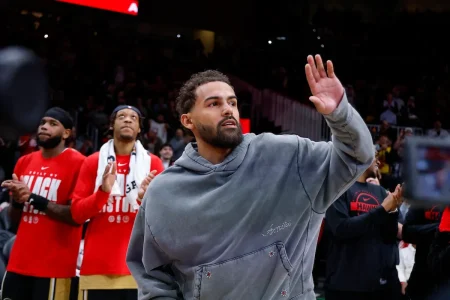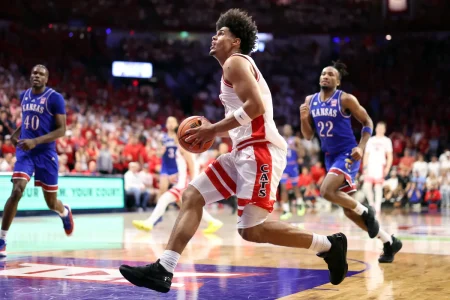Chicago Bears cornerback Jaylon Johnson recently confirmed reports of a heated confrontation with former head coach Matt Eberflus following the team’s disappointing loss to the Detroit Lions. During his appearance on the Spiegel & Holmes Show, Johnson expressed no regrets about expressing his frustration over the Bears’ mismanagement during the critical moments of the game. The team’s mechanics contributed to their downfall, as Eberflus opted not to use a timeout after rookie quarterback Caleb Williams was sacked, allowing the clock to run down to just six seconds before the Bears attempted a deep pass that ultimately fell incomplete. This mishap marked the fourth instance in a six-game losing streak where the Bears lost a game in the final moments, intensifying Johnson’s frustrations.
Before losing to the Lions, the Bears had struggled significantly, and Johnson’s frustrations stemmed from a growing sense of discontent over the team’s ongoing failures. Following the game, he took action by confronting Eberflus, a decision that, according to him, was in line with his need to express concerns about the team’s direction. Johnson’s emotional outburst, which he later characterized as merely venting frustrations, manifested a sense of urgency for improvement within the team. He noted that his confrontation did not take him aback, stating he "didn’t really give a d***" about the potential fallout from the situation coming to light. This candidness reflects Johnson’s deep involvement and investment in the team’s performance and his willingness to voice genuine concerns about its state.
The aftermath of Johnson’s confrontation with Eberflus led to a swift shift within the organization, culminating in Eberflus being fired the day after the loss to the Lions. This abrupt decision followed Eberflus’s own declaration in a press conference where he professed confidence in coaching the upcoming game against the San Francisco 49ers. The rapid response from the Bears’ front office underscored the urgency of change needed within the organization, which had compiled a poor 14-32 record under Eberflus’s management over two seasons. His dismissal marked him as the third head coach to lose his job in just the early stages of the 2024 season.
At the current juncture of the season, the Bears stand at a dismal 4-8, making them the only team in the NFC North carrying a losing record. The 2024 offseason coaching vacancies are anticipated to attract significant interest, particularly following the firing of Eberflus. In the interim, Thomas Brown, the team’s offensive coordinator, has stepped into the role of head coach. Johnson’s sentiments on the upheaval reflect a broader acceptance of the business-like nature of the NFL, wherein coaches, players, and management can find themselves on uncertain ground as results dictate decisions made by the organization.
Johnson maintained that while he voiced his frustrations, he didn’t view himself as the catalyst for Eberflus’s job loss. Frustration with the team’s shortcomings has festered over a five-year period, as Johnson profoundly expressed his discontent with the team’s trajectory. The context of this abrupt coaching change highlights the volatility and competitiveness of the NFL, where performance directly dictates job security. Players increasingly feel this pressure, and Johnson’s emotional outburst underscores the reality that internal dissatisfaction can erupt after repeated failures both on an individual and team level.
In summation, Jaylon Johnson’s candid admission about his subsequent fallout with Matt Eberflus signifies a critical turn for the Bears as they seek to extract themselves from a downward spiral. With a new interim head coach, the team hopes to revitalize their momentum moving forward in the remainder of the season. Johnson’s raw perspective as a player reflects broader sentiments shared within the locker room, emphasizing the toll that a string of losses can take on the morale and performance of a team. As the organization transitions and seeks a more effective leadership structure, much rests on Johnson and his teammates’ ability to harness their frustrations constructively to reinvigorate their performance on the field.













